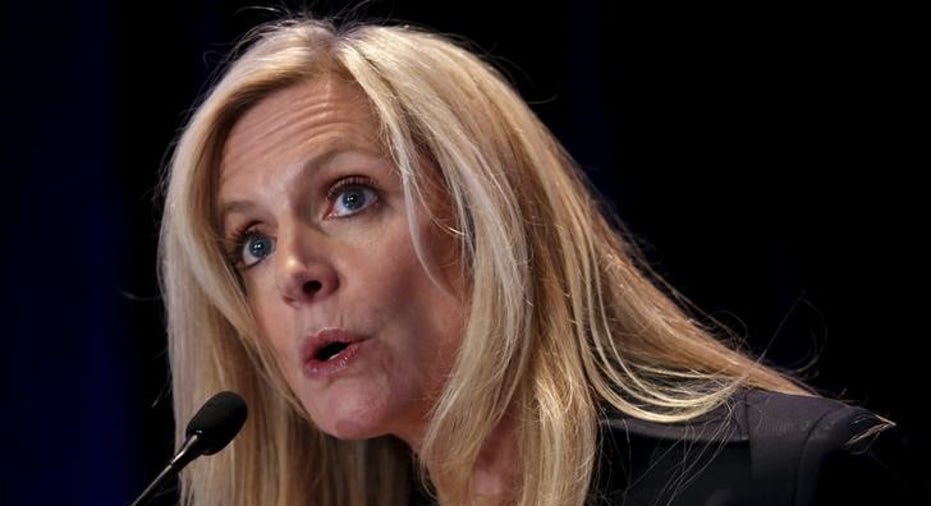Brainard joins Fed chorus warning about fiscal stimulus risks

WASHINGTON – A leading Federal Reserve proponent of low interest rates said on Tuesday the U.S. central bank might hike rates more aggressively if deficit spending under the Trump administration produced a quick economic boost.
"If fiscal policy changes lead to a more rapid elimination of slack, policy adjustment would, all else being equal, likely be more rapid," Fed Governor Lael Brainard said at an event hosted by the Brookings Institution.
Brainard, who was a senior U.S. Treasury official in the Obama administration, has urged a cautious approach to raising rates since joining the Fed's Board of Governors in 2014.
But Tuesday she joined the growing chorus of policymakers at the Fed warning that a sustained widening of the budget deficit could fuel inflation with the U.S. economy already near full strength, and prompt the Fed to respond with more aggressive rate hikes.
"Full employment is within reach and could prove sustainable with the right policy mix," she said, adding that the Fed's "gradual approach" to raising rates could change depending on future fiscal policies.
After keeping rates near zero for seven years to help the economy recover from the 2007-2009 recession, the Fed pushed through one rate increase in 2015 and another in 2016. Central bank policymakers project three hikes as likely this year.
U.S. President-elect Donald Trump, who takes office on Friday, has made the economic outlook more uncertain, however, with pledges to cut taxes and boost spending on the U.S. military and the country's infrastructure.
A range of Fed policymakers has warned that wider fiscal deficits could cause the economy to overheat, requiring more rapid rate hikes that could send the economy into another recession.
San Francisco Fed President John Williams on Tuesday encapsulated that fear with a warning. "When you let the economy run too hot for too long, policy then needs to at some point reverse course and it���s very hard to engineer a soft landing," he said. Fiscal stimulus could speed U.S. growth and require faster rate hikes, he said, but weaker Chinese or European growth could slow down both. While both possibilities are on his radar, overall risks to the outlook seem balanced, he said.
New York Fed President William Dudley on Tuesday did note a potential upside to new policies, saying that more business-friendly government rules could help make businesses and workers more productive.
Similarly, Brainard said fiscal changes that help the U.S. workforce become more efficient would spur faster future growth, restraining future deficits.
(Reporting by Jason Lange; Additional reporting by Richard Leong in New York and Ann Saphir in Sacramento; Editing by Paul Simao and Diane Craft)



















